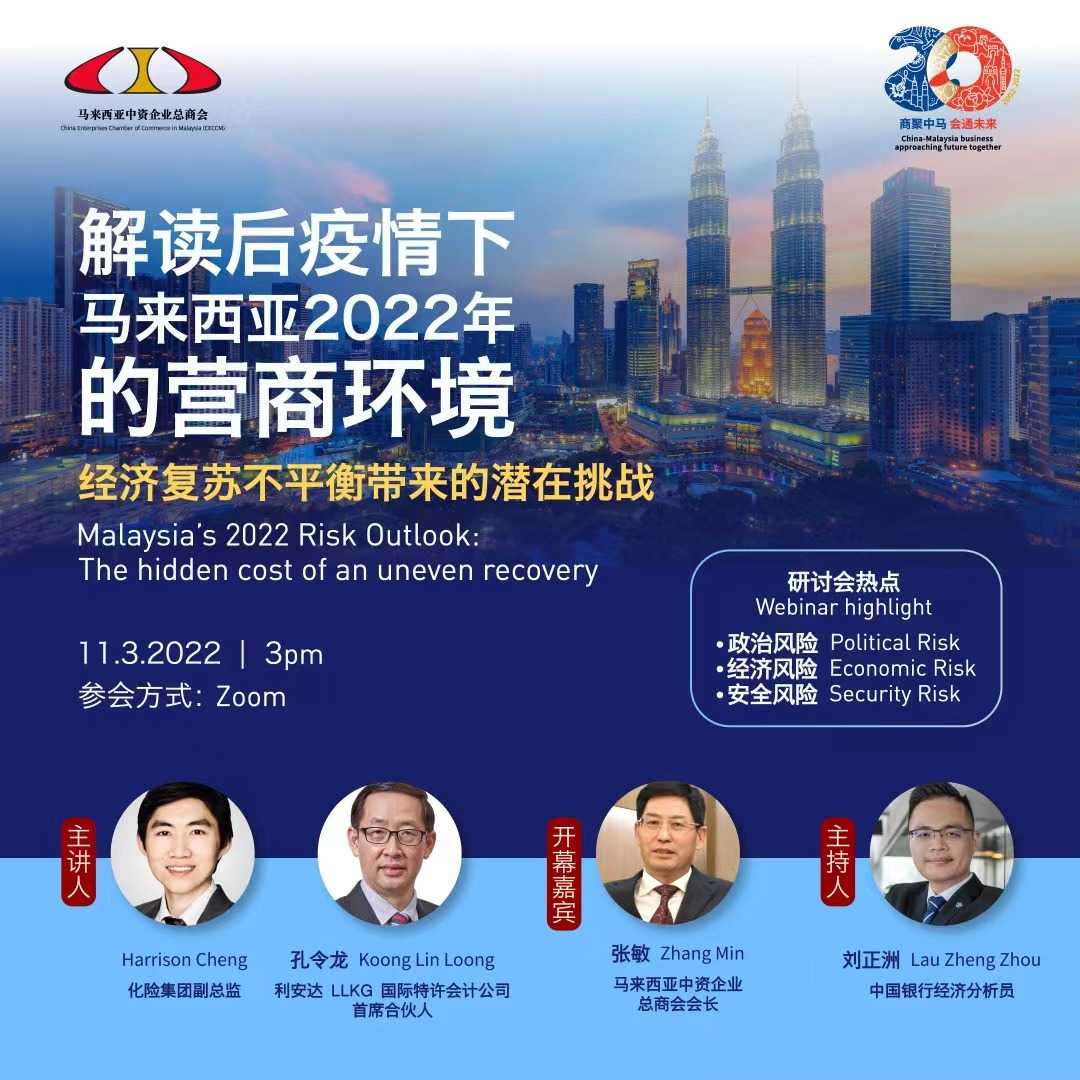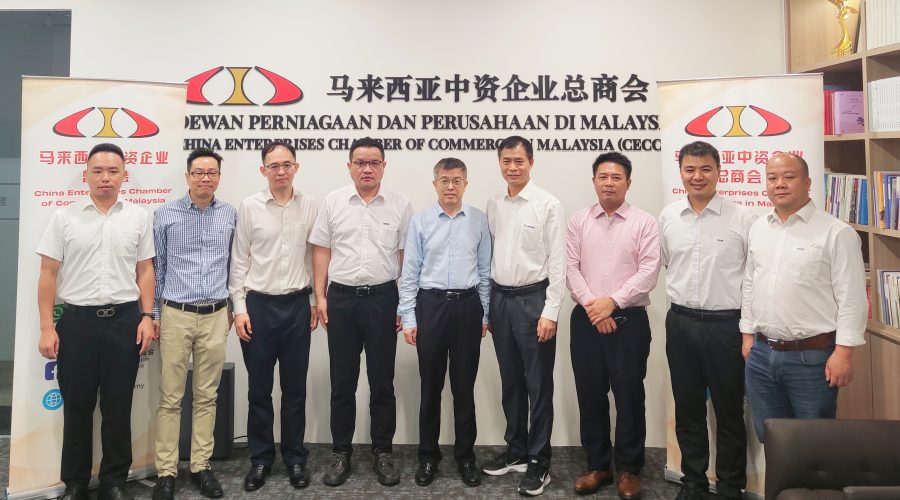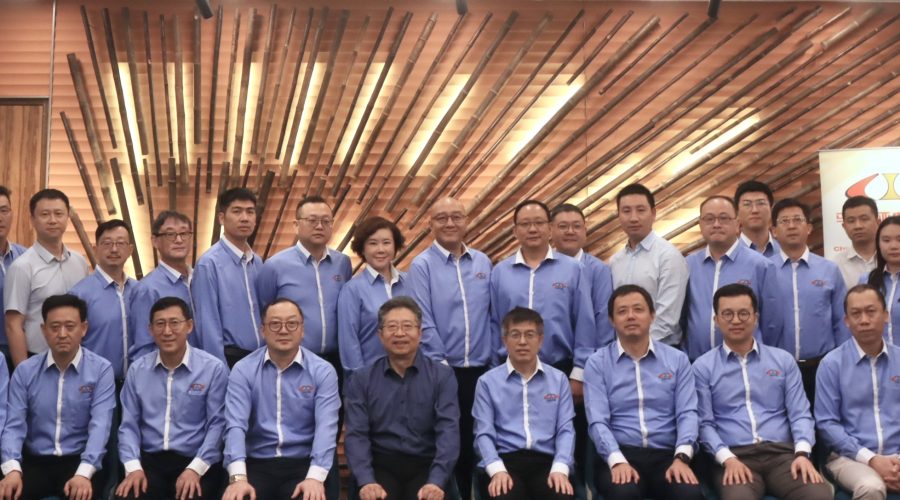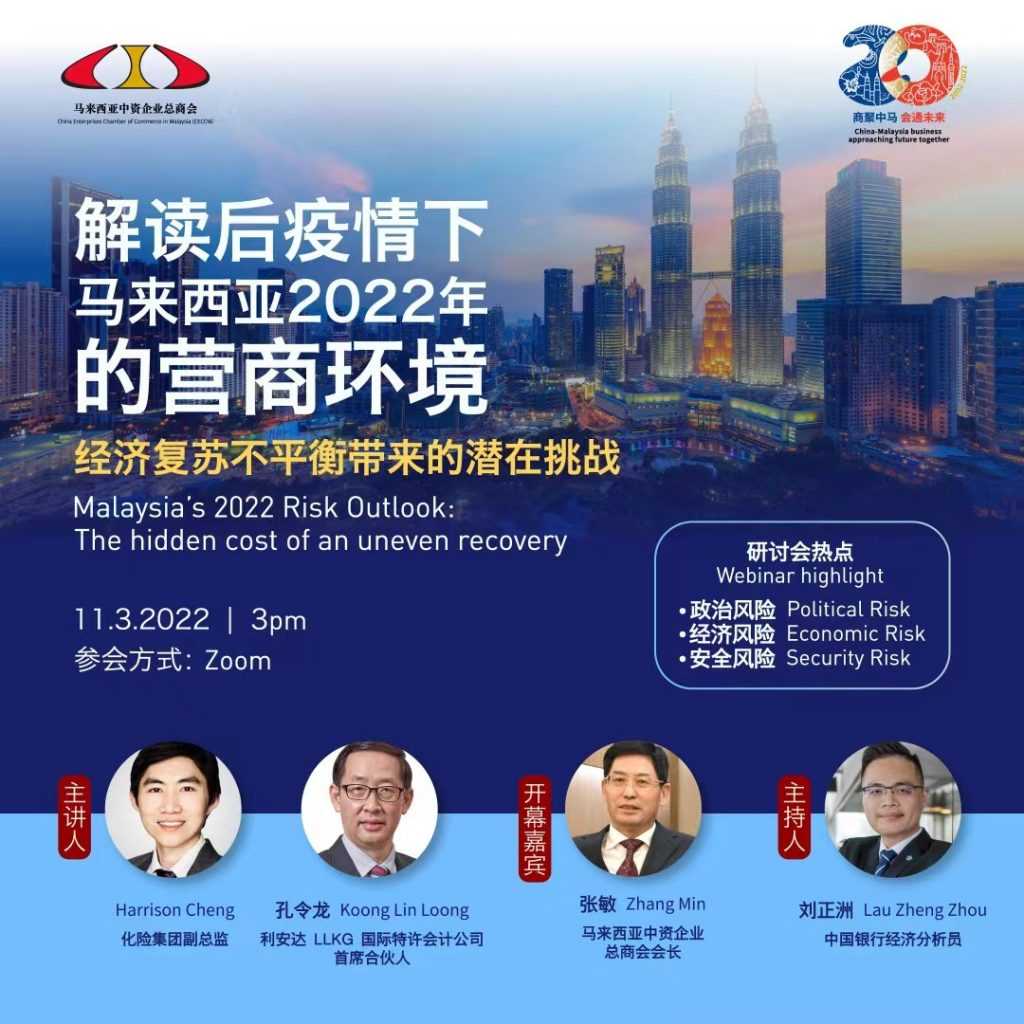
2022年3月11日,马来西亚中资企业总商会联合利安达LLKG国际特许会计公司及化险集团举办《后疫情下马来西亚2022年的营商环境:经济复苏不平衡带来的潜在挑战》线上座谈会。此次座谈会共吸引150家企业,近300人线上参与。座谈会主要讲解有关目前在马营商的机会和挑战,以及面临的政治、经济和安全风险,相应的规避措施,会后也设有问答环节在线解答参会者的疑问。

张敏会长在致开幕辞时表示,全球经济在近两年新冠疫情的冲击下,已从短暂的衰退逐渐走向复苏。今年,随着一带一路以及RCEP的推进与落实,在马发展的中企数量将不断增长,参与形式也更加丰富。他以“危机也是契机”鼓励在马中资企业勇于在危机中接受新挑战,以积极的心态应对当今市场的变化,抓住机遇,控制好风险,促进企业健康发展。他表示,今年是马来西亚中资企业总商会迈入20周年庆,总商会将一如既往地积极为在马中资企业开拓新机遇,努力为中马两国经贸发展做出有利的贡献。

化险集团专家代表Harrison Cheng针对马来西亚目前的政治局势,提出对外企营商与投资环境的影响。他表示,目前马来西亚对犯罪、社会动乱、盗窃、恐怖袭击等安全威胁风险管控相对严谨周全,唯政权政策的多变与不确定性为企业所带来的潜在干扰较难预测。因此,政治风险对企业所构成的影响,将是外来投资者更主要的关注点。然而,无论马来西亚政权如何变更,对外商投资的立场将始终保持开放与支持态度。他认为,只要企业能提前对风险管控进行合理规划、做好防范与应对策略,就能在危机下快速反应并稳健恢复。
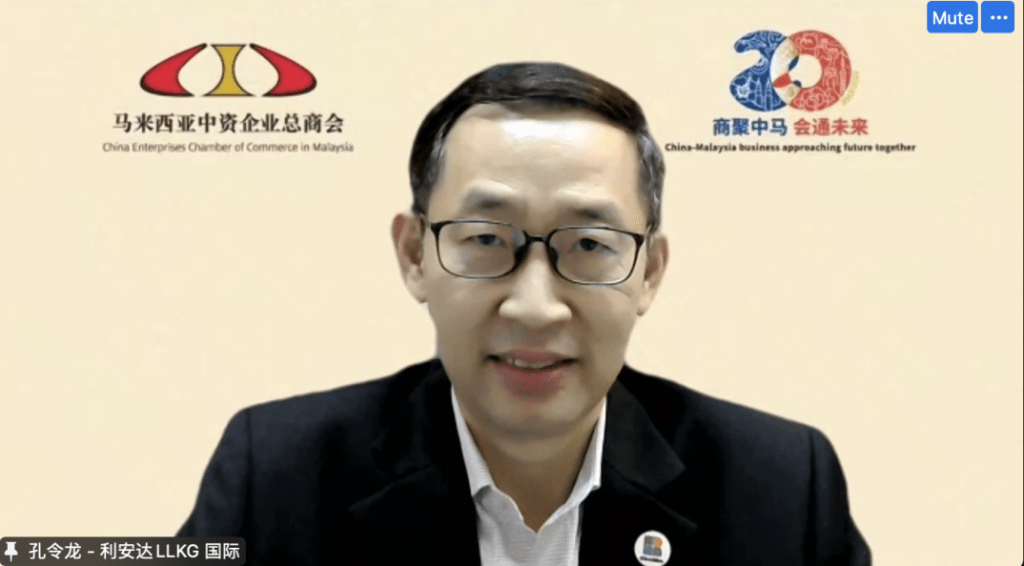
随后,利安达国际特许会计公司首席合伙人孔令龙局绅透过马来西亚经济季度报告,简单回顾马来西亚目前的国内生产总值 (GDP)、就业情况、政府收支及开销、负债率等数据。他在剖析马来西亚目前的经济概况时,引述了中总社会经济研究中心的报告,表示尽管有风险的存在,但马来西亚的经济基本上已经走向复苏,外来直接投资也大幅回升。为此,他建议在马中资企业深度了解自身企业的基本税务及马来西亚财政预算案、国家经济特区所给予外资的优惠政策。这将帮助企业适度调整营商方式,灵活应对经济市场需求的增减变动,降低市场起伏对企业运营的影响。
会后的问答环节中,两位主讲人针对与会者提出的问题给予专业建议。本次座谈会进一步提高了大家对营商风险管理的深刻了解,也为在马中资企业健康发展起到积极作用。本次座谈会主持人为马来西亚中国银行经济分析员刘正洲。
_
On 11th March 2022, China Enterprises Chamber of Commerce in Malaysia (CECCM), Reanda LLKG International and Control Risks jointly organised the “Malaysia’s 2022 Risk Outlook: The hidden cost of an uneven recovery” webinar. The webinar attracted a total of 150 companies and nearly 300 participants. It mainly explained the current opportunities and challenges of business in Malaysia, as well as the political, economic and security risks faced by the business and the corresponding measures. There was a QnA session towards the end of the webinar to help clarify participants’ enquiries.
In his opening speech, President of CECCM Zhang Min said that under the impact of the Covid-19 in the past two years, the global economy has gradually recovered from a brief recession. This year, with the promotion and implementation of the Belt and Road Initiative and RCEP, the number of China enterprises developing in Malaysia will continue to grow. With “crisis is also an opportunity”, he encouraged Chinese-funded enterprises in Malaysia to have the courage to accept new challenges during the crisis, respond to changes in today’s market with a positive attitude, seize opportunities, control risks, and promote the healthy development of enterprises. He added that this year marks the 20th anniversary of China Enterprises Chamber of Commerce in Malaysia, the Chamber of Commerce will continue to actively explore new opportunities for Chinese enterprises in Malaysia and strive to make beneficial contributions to the economic and trade development of China and Malaysia.
Harrison Cheng, Associate Director of Control Risks, pointed out the impact on the business and investment environment of foreign companies in view of the current political situation in Malaysia. At present, Malaysia has a relatively rigorous and comprehensive control of security threats such as crime, social unrest, theft, and terrorist attacks. However, the potential interference caused by the change and uncertainty of the regime’s policies is difficult to predict. Therefore, the impact of political risks on companies will be a more important concern of foreign investors. Nevertheless, the stance on foreign investment will always remain open and supportive regardless of how the Malaysian regime changes. He believes that as long as companies can reasonably plan for risk management and control in advance, they can respond quickly and recover steadily despite the crisis.
Koong Ling Loong, Managing Partner of Reanda LLKG International, reviewed Malaysia’s current gross domestic product (GDP), employment, government revenue and expenditure, and debt ratio through the Malaysia Economic Quarterly Report. He stated that despite the existence of risks, Malaysia’s economy has basically recovered and foreign direct investment has also rebounded sharply. He suggested that Chinese-funded enterprises in Malaysia have an in-depth understanding of the basic taxation of their own companies, the Malaysian budget, and the preferential policies for foreign investment granted by the national special economic zone. This will help companies adjust their business methods appropriately, respond flexibly to changes in economic market demand, and reduce the impact of market fluctuations on business operations.
During the QnA session, the two speakers shared professional views to the questions raised by the participants. The webinar further increased everyone’s in-depth understanding of business risk management and also played a positive role in the healthy development of Chinese-funded enterprises in Malaysia. The moderator of the webinar is Lau Zheng Zhou, Economic Analyst of Bank of China Malaysia.


